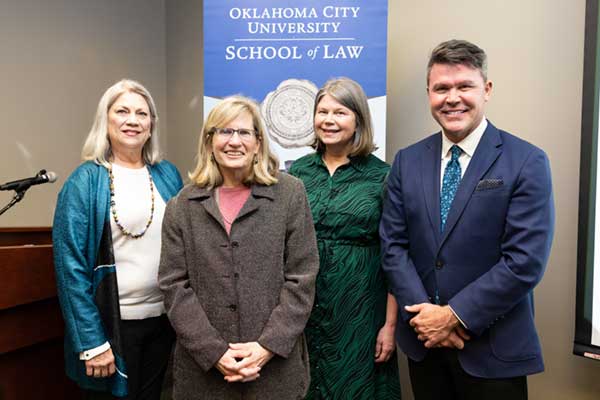Presented by Helen Norton, University Distinguished Professor and Rothgerber Chair in Constitutional Law at University of Colorado Law School
Constitutional questions can be especially challenging when they force us to choose between important constitutional values – between liberty and security, for example, or among speech, religion, and equality. Along these lines, some First Amendment problems are particularly difficult because they demand that we choose between speakers’ and listeners’ First Amendment interests.
Speakers’ and listeners’ First Amendment interests collide when speakers want to tell lies while their listeners want the truth. And when listeners want speakers to reveal information that speakers would prefer to conceal. And when listeners want to be left alone while speakers want to talk to them. This lecture explored the ways in which listeners’ interests make a difference in how we think about, and decide, important First Amendment problems.
Professor Norton explained the role of listeners’ interests in shaping past Supreme Court decisions, some involving commercial speech and others involving political campaigns. The lecture then examined the role that listeners’ interests currently play in disputes that now divide the lower courts, disputes that will no doubt soon reach the Supreme Court. These include ongoing disagreements about how to define “true threats” unprotected by the First Amendment, as well as free speech challenges to recently-enacted laws that restrict platforms’ choices about whether to publish certain speakers’ posts on their sites. Throughout this discussion, the lecture explored several different “tiebreakers” for resolving First Amendment conflicts between speakers and listeners.
